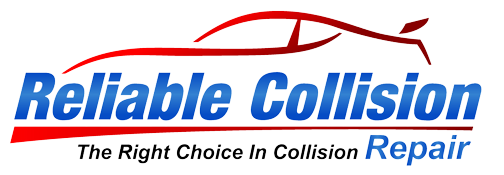Common Misconceptions
Misconception #1: My agent says I have to use a shop on the Insurance Companies list of shops.
No you don’t. A lot of the shops on the insurance companies’ lists have agreed to concessions in order to be on the so-called “list” of approved shops. The best shops are usually not on the insurance lists because they won’t cut corners, and legally you can choose any shops you want to repair your vehicle. The shops they often recommend are on a sort of “HMO” for collision repair. They set the deal for how your car will be fixed long before you ever got into an accident. Discounts or kickbacks, used parts, imitation parts, skipped procedure and more are often used in these programs. All this is in exchange for getting you to go to their shop. And if you have a problem keep in mind the shop and Insurance Company have a business relationship that makes them stick together. Good luck getting help from either if you have a problem with one of them, beware if an insurance representative that tries to get you to go to a shop and states they are on a special program with them. Think HMO for collision repair.
Misconception #2: My insurance agent will look of for my best interest.
People often refer to their agents as “My agent”. Nothing could be further from the truth. The agent works for the insurance company, that is why they are called insurance agents not Customer agents. Inside insurance companies they are referred to as producers. These agents produce you money to the big insurance company. Insurance agents are paid by the insurance companies; their pay is based on the money they send in and the losses that go along with it. As soon as you have an accident you are affecting their pay. Some differences do apply to different companies. Ask your agent how he gets paid and you will get a better insight to where his concerns lie. Also most agents must meet a certain quota to continue selling insurance for major insurance companies; you may get a policy with a company to meet a quota, not because it is a good value for you. A good agent will be your best defense against bad insurance companies and being under or over insured. A bad agent will sell you what he or she wants based on a commission with no regard for your needs. Choose an agent based on their reputation, reputations are earned not bought. Don’t be fooled by thinking all insurance companies are the same, unless you do homework you will not know how good your choice is until you have an accident. Ask your chosen body shop what insurance companies are good, they deal with them every day unless you get in accidents weekly, you don’t.
Misconception #3: The shop that wrote the lowest estimate is the one my Insurance Company says I should use.
No way. Never go with the lowest estimate. The reason your insurance company wants the lowest estimate is to try to save them money, but you have to ask yourself this question, what did they miss or leave off to make the estimate lower? Many shops write low estimates on purpose to get work in the door then turn in a large supplement bill to you and your insurance company.
Misconception #4: My Insurance Company says I have to use XYZ auto body to repair my car.
No you don’t. This is called steering. This means that you insurance company is trying to dictate where you are to have your vehicle repaired. In Rhode Island this is illegal your insurance company can’t tell you where to take your vehicle this is your decision to choose the shop you want to do the repairs.
Misconception #5: My Insurance Company is looking out for my best interest I’ll be ok.
Don’t bet on it! The only interest your insurance company is looking out for is their own. The cheaper the repair is, the more money they save. They could care less if you have your vehicle fixed right, as long as you aren’t complaining about it to them, there are a lot of insurance companies getting sued right now for trying to rip off their customers and cut corners on repairs. Insurance companies are in the business of money management not fixing cars. This is their business and they are good at it. Your best interests are not factored into their bottom line, but your claim expenses are.


